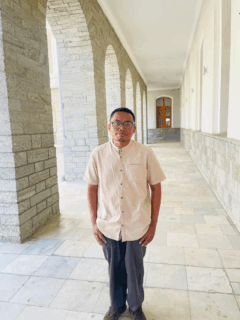Irvan Aladip Mahfudin
Transnational Religious Actors in Peacebuilding: A Comparative Analysis of the Role of Nahdlatul Ulama on Conflict Transformation in Afghanistan and Muhammadiyah in the Philippines’ Peace Process
From post-World War II to the present, the number of civil or intra-state wars has increased considerably. On the one hand, it is often said that religion can become a key factor in intrastate or civil wars; however, on the other hand, religion can also become a potential tool for reconstructing and upholding peace in conflict areas. In this context, religious leaders or actors with their transcendent authority (spiritual and emotional) have a significant opportunity to influence peace processes, especially in terms of positive peace, through conflict transformation. Unfortunately, the role of religious actors, whether indigenous or external, in peace processes often goes unnoticed and is often overlooked compared to the prominence of state actors. My PhD- project aims to exame the role of transnational religious actors in promoting peace in conflict or post-conflict settings by taking comparative empirical analyses of Nahdlatul Ulama and Muhammadiyah – the two largest Indonesian Islamic mass organisations – in initiating peace abroad. The dissertation looks at two recent sites, where these religious actors made an impact: Afghanistan and the Philippines. The dissertation wants to explain how transnational religious actors‘ peacebuilding initiatives contribute to transforming conflicts in different conflict settings. It is based on fieldwork and interviews with religious actors and local actors in Afghanistan, Indonesia and the Philippines.
* Irvan’s research is supported by a grant for the Liska Maskell Fellowship from the Gerda Henkel Stiftung.
